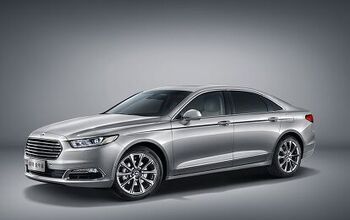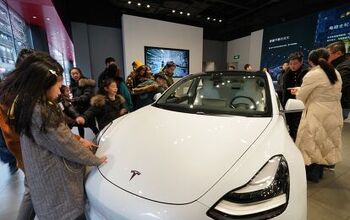China Changes Taste For Cars: Small Is The New Big

For a long time, the Chinese car market looked more like the American and less like the European markets. They liked big, they liked SUVs, they liked real cars with a trunk. For a long time, hatchbacks and subcompacts were unsalable in China. Last year, the picture changed. More and more low cost subcompacts are getting on Chinese roads.
“In China, new-car sales last year rose just 6.7 percent to 9.38m units, slamming the brakes on the market’s double-digit growth. Nonetheless, a batch of automakers enjoyed nearly 30 percent jumps in sales,” the Nikkei (sub) writes. And who might those be?
Joint ventures established by Toyota, Nissan, Honda and other Japanese automakers have maintained strong demand by rolling out subcompacts. Dongfeng Honda for instance reported a 29.1 percent surge in sales for 2008. Dongfeng Nissan’s targets sales of 388K vehicles for 2009, up 11 percent from 2008, despite a cooling local auto market, the Nikkei (sub) says.
What changed? (Government controlled) gasoline prices had risen dramatically during the first half of the year. When crude nosedived, gasoline prices remained high and only declined slightly. Also, the government slashed sales tax on cars with a displacement of 1.6 liters or less from 10 percent to 5. At the same time, the raised the taxes on the bigger bore stuff. Bigger bore didn’t suffer. But small jumped.
The Chinese market is looking more and more like the European and Japanese markets now. Who’s hurting? GM. Last year, GM’s Buick joint venture with Shanghai Automotive Industry Corp. dropped 8.3 percent compared with 2007, Edmunds said. This year, it’s likely to get worse, as small is getting bigger and bigger in China.

Bertel Schmitt comes back to journalism after taking a 35 year break in advertising and marketing. He ran and owned advertising agencies in Duesseldorf, Germany, and New York City. Volkswagen A.G. was Bertel's most important corporate account. Schmitt's advertising and marketing career touched many corners of the industry with a special focus on automotive products and services. Since 2004, he lives in Japan and China with his wife <a href="http://www.tomokoandbertel.com"> Tomoko </a>. Bertel Schmitt is a founding board member of the <a href="http://www.offshoresuperseries.com"> Offshore Super Series </a>, an American offshore powerboat racing organization. He is co-owner of the racing team Typhoon.
More by Bertel Schmitt


































Comments
Join the conversation
AKM, I think you have it backwards. Third world consumers emulate american tastes. Nothing says you've made it like being able to afford a large car. And american large cars have always been less expensive to buy than anyone elses.
A gas tax in the US is the equivalent of a poor tax. It is also political suicide. At least the Chinese are not letting each province make up its Fuel Economy rules.
menno, while Michigan has been beaten up rather badly for the last decade, I am pretty sure there are still over ten million people who live in the state. I am no longer one of them, but I do have land in Lake county. It sounds like you might be located near there?